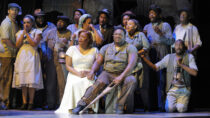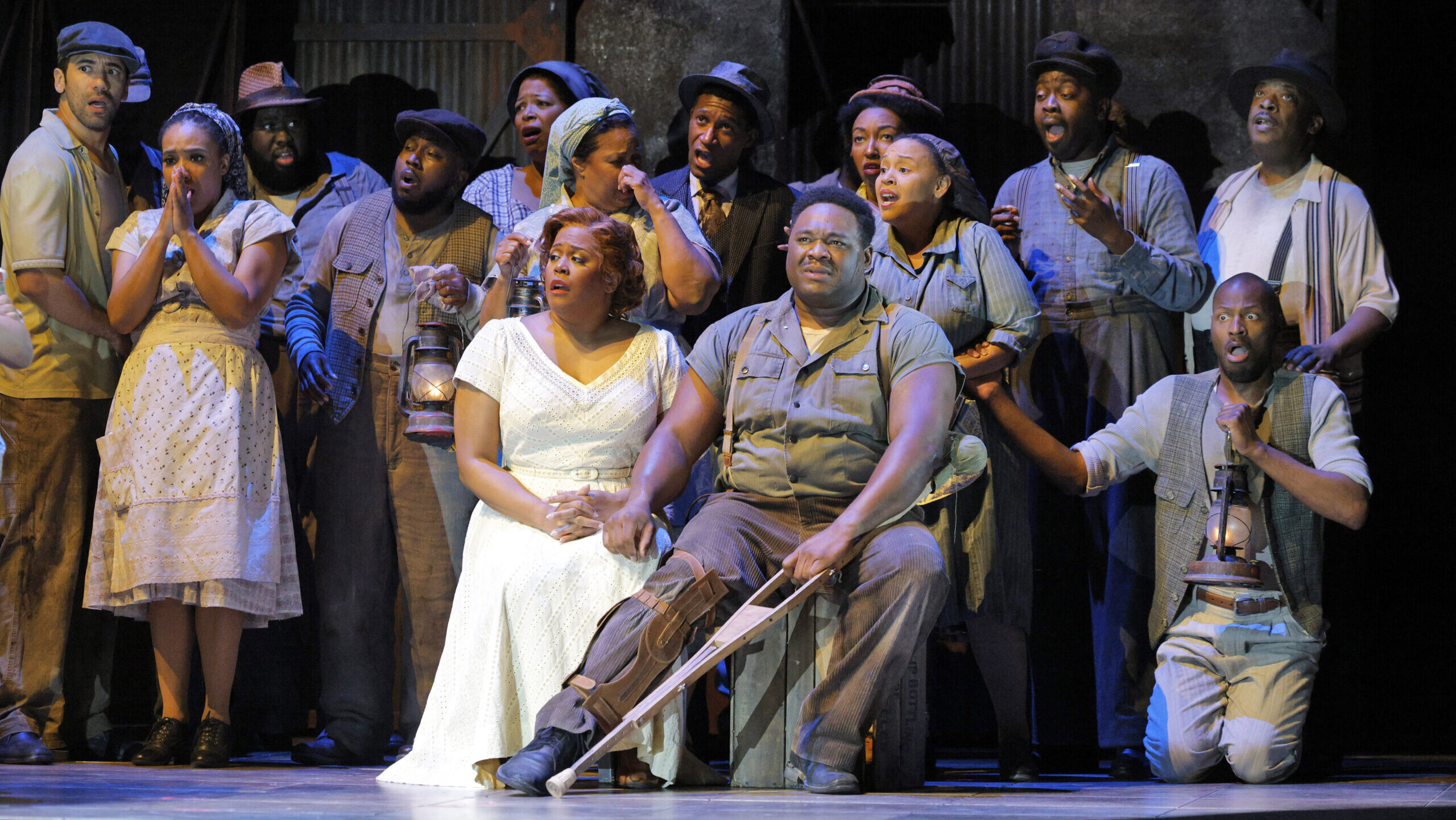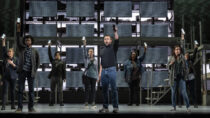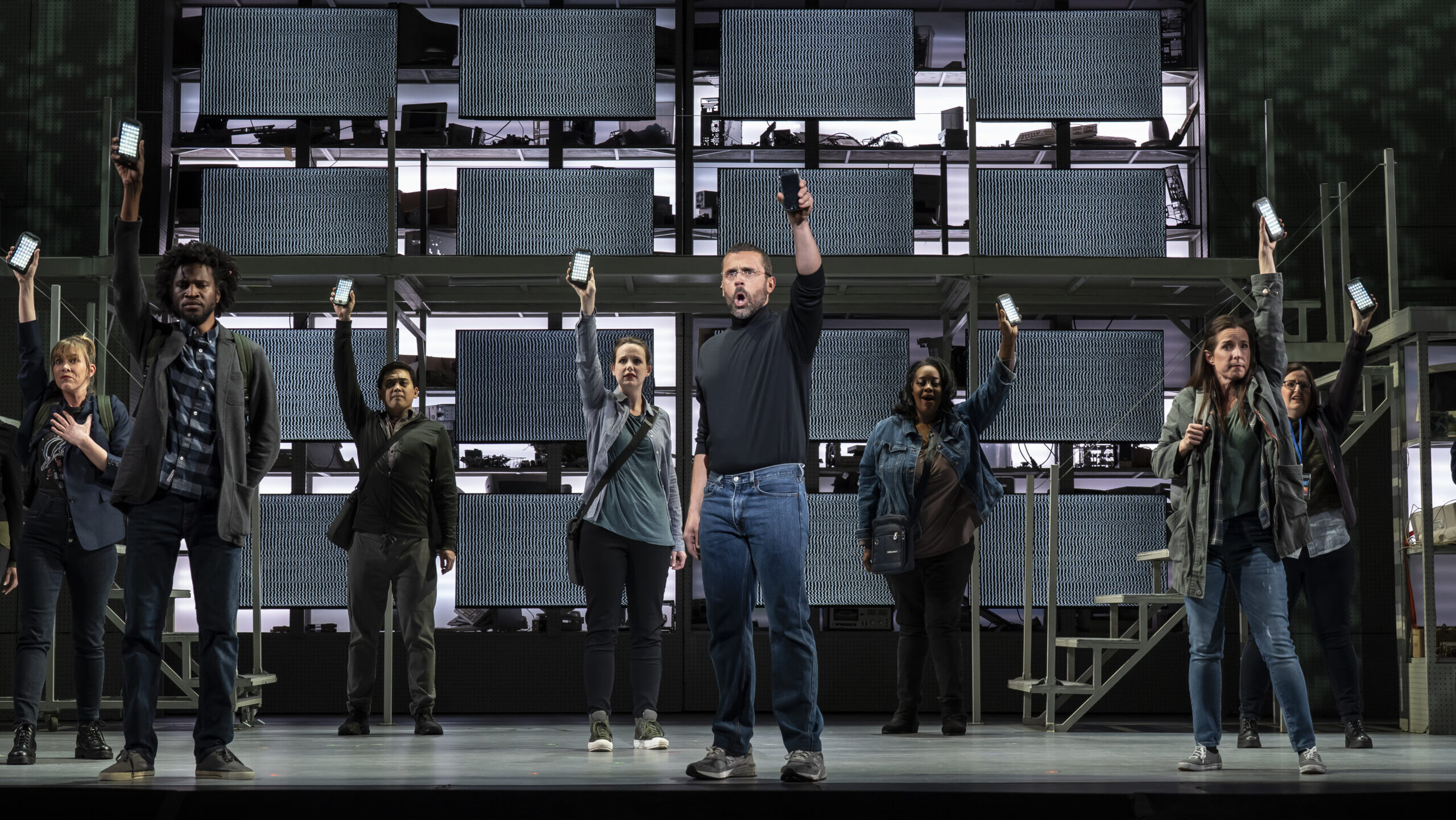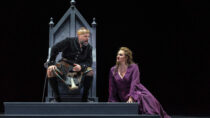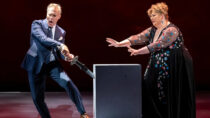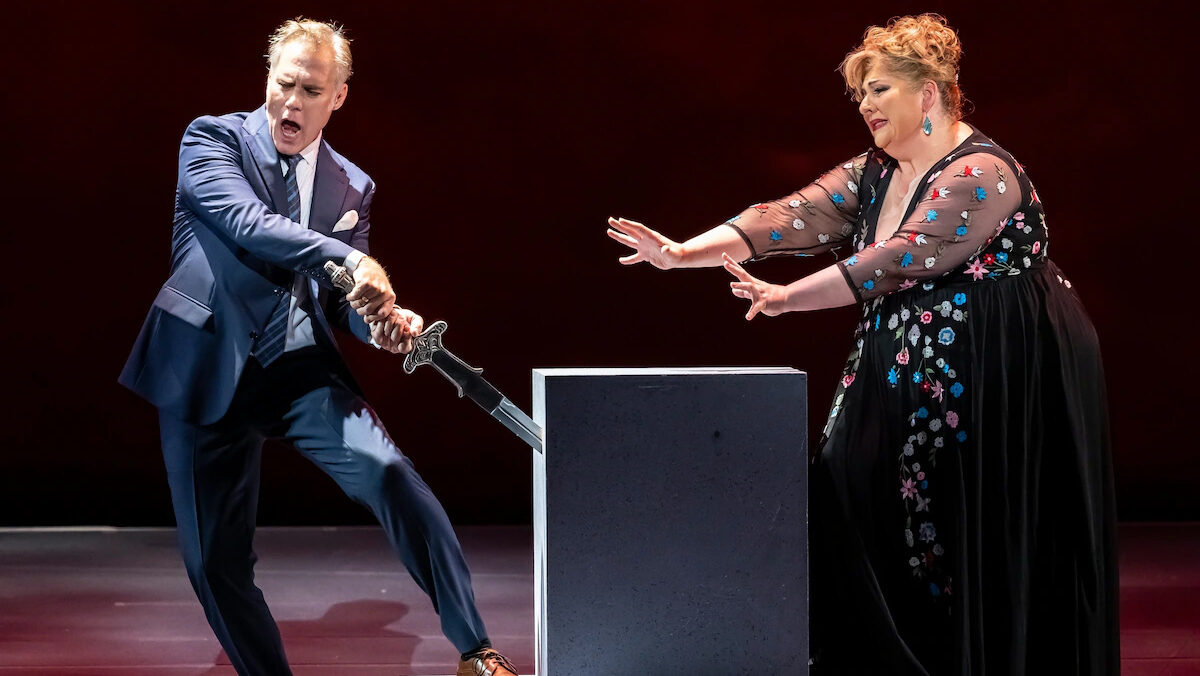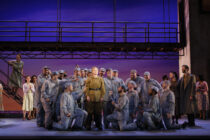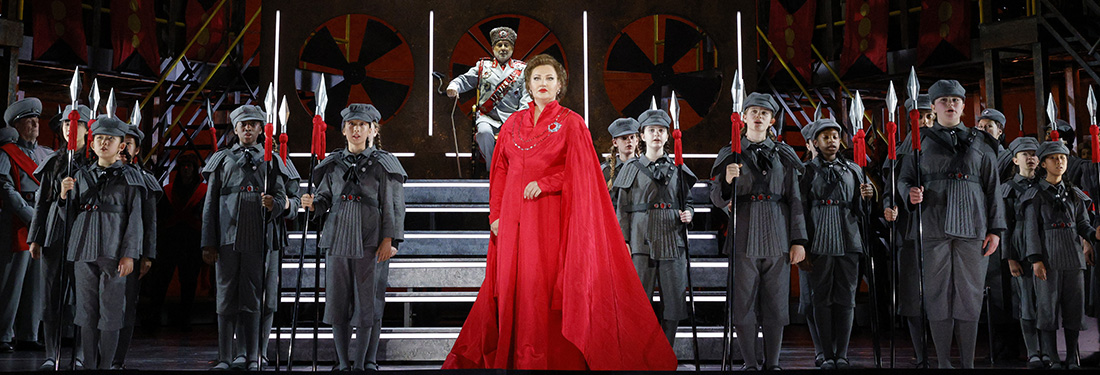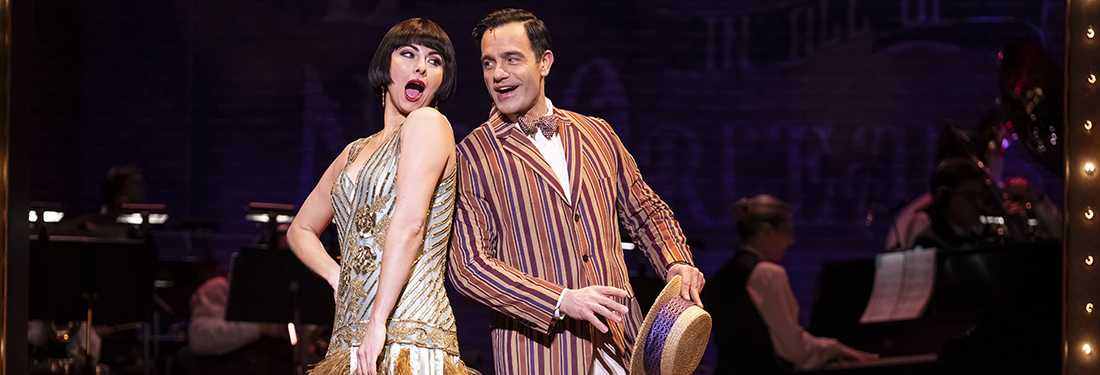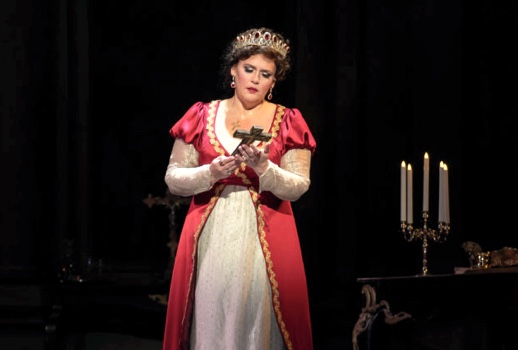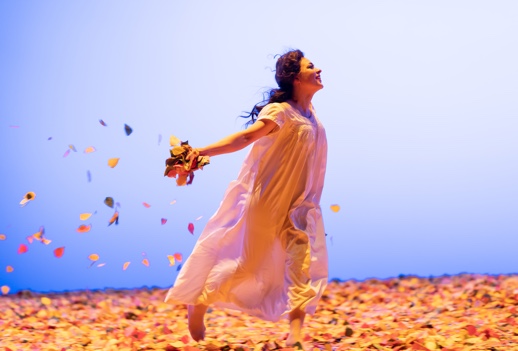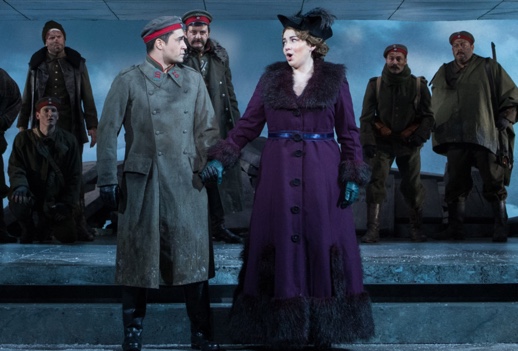
Washington National Opera is leaving the Kennedy Center, according to The New York Times
Washington National Opera’s holiday presentation of The Little Prince, based on the classic French novella by Antoine de Saint-Exupéry, showcased the company’s Cafritz Young Artists
Washington National Opera presented a well-sung and humorous Marriage of Figaro, buoyed by clever direction and a strong cast, particularly Rosa Feola’s Countess and Joélle Harvey’s Susanna.
The women were the highlights of Washington National Opera’s militaristic Aïda
Brendan Latimer sits down with Francesca Zambello and members of the cast of Washington National Opera’s production of Aïda to discuss the complicated legacy of one of Verdi’s most beloved works and the tricky business of “inventing the truth.”
An impressively well-rounded revival of Francesca Zambello‘s production of Porgy and Bess concludes the Washington National Opera season
The (R)evolution of Steve Jobs at the Kennedy Center: not a poorly made opera, but so relentlessly mid.
Washington National Opera’s second full-run offering of the season, a new production of Verdi’s perennially appealing Macbeth, premiered last Wednesday at the Kennedy Center.
Washington National Opera rounded out its season opening weekend with a one-night-only performance entitled “Gods & Mortals: A Celebration of Wagner” the evening after the premiere of its new production of Fidelio.
If Zambello’s season-ending Turandot last year represented some of the best of what WNO can offer in the standard rep, this Fidelio was a regression to the mean.
Washington National Opera’s final production of the season, seen May 22, is also its high point: a new Turandot directed by Francesca Zambello, updated to the 20th century and featuring the world premiere of a completion of Puccini’s score by composer Christopher Tin and playwright and screenwriter Susan Soon He Stanton.
Opera at the Kennedy Center has been in hibernation this winter.
Rosa Feola, hailed last year for her Gilda at the Met, brought a level of vocal refinement and elegance to Juliet that substantially elevated the night’s proceedings.
Chopping up the action and dutifully showing each plot point may work in a film but in an opera, where every piece of marginal dialogue must be set to music, it feels like a chore.
Originally scheduled for a D.C. premiere in spring 2020 but thwarted by the pandemic, Washington National Opera was finally able to present composer Jeanine Tesori and librettist Tazewell Thompson’s Blue at the Kennedy Center last Saturday.
If it is true that there are few respectable ways for people over 40 without small children to celebrate Halloween, a performance of Richard Strauss’ pioneering horror opera Elektra belongs on the short list.
It’s maybe not a surprise that Carmen is neither a good vocal nor temperamental fit for Isabel Leonard.
In 2022, making Così fan tutte intimate is not a radical act. Making it enjoyable, however, is.
As long as women have been preyed upon, Don Giovanni has been relevant.
Renée Fleming—stylish dame with a stylish name—who lived by jungle law in a big city and clawed her way to where the money was…
While Russell Thomas admirably goes toe to toe with Otello (and Otello) in a thoughtful and self-aware way, the assumption feels like a work in progress if not an outright mismatch with his vocal gifts.
Tosca, as it exists now, can’t be real, spontaneous drama-it’s just Camp.
Is there any opera that can take more of a beating while still making an impact than Eugene Onegin?
Give the creators credit for producing an emotional response.










